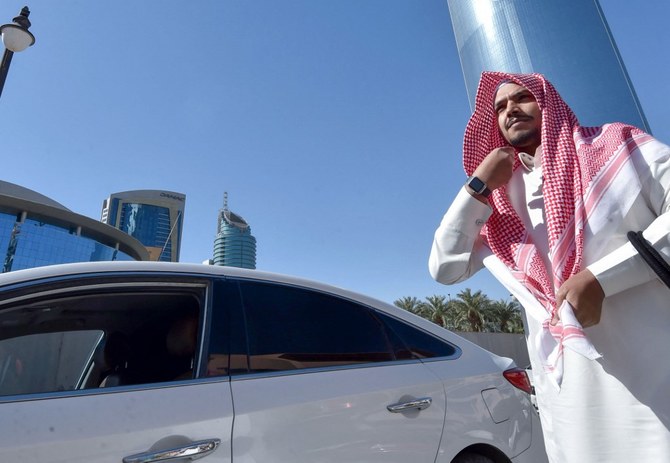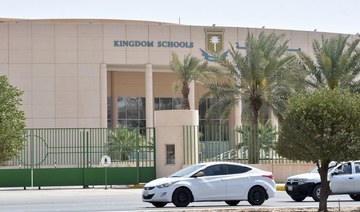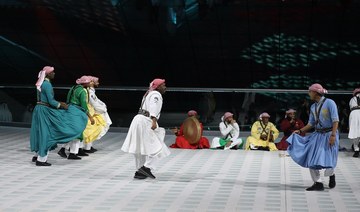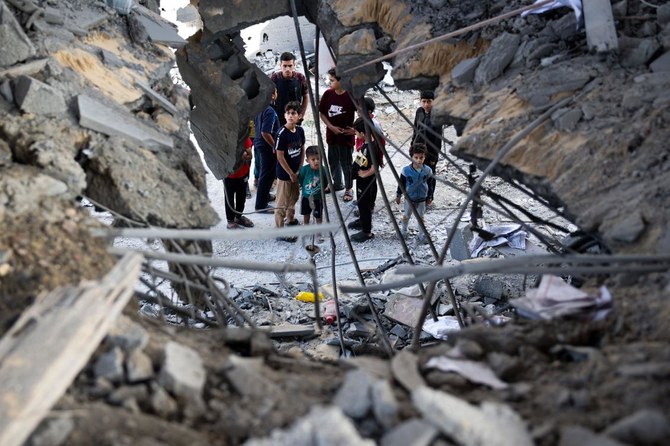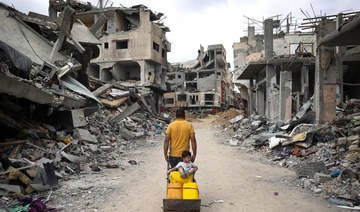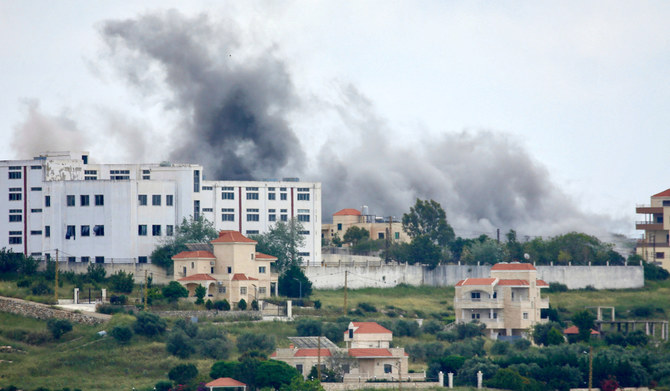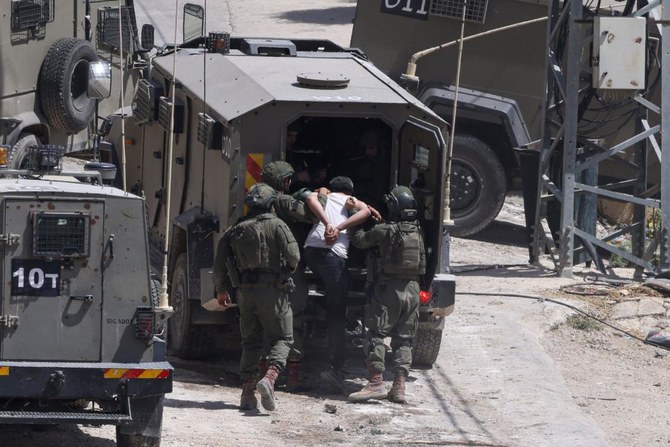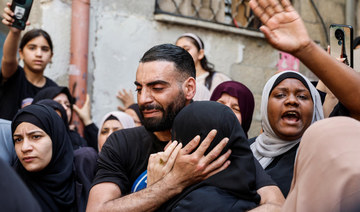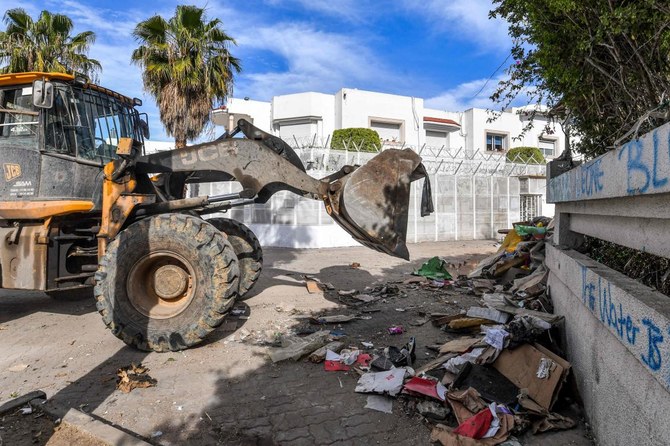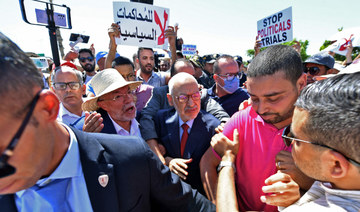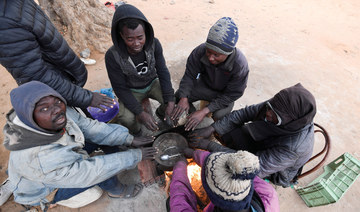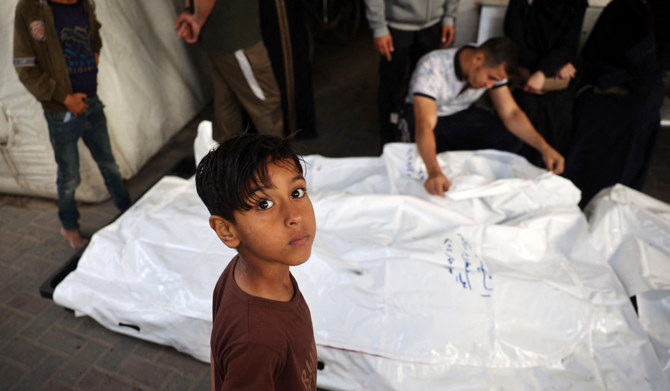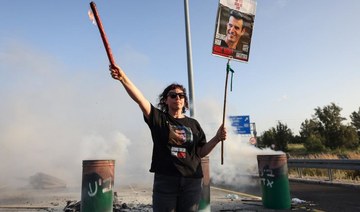DUBAI: Young Arabs are taking an increasingly optimistic view of their prospects in the post-pandemic world, with Saudi youth among the more confident that their lives will improve as the COVID-19 wave recedes.
That is one of the main findings of the 2021 annual Asda’a BCW Arab Youth Survey of people in the region, released on Tuesday, showing positivity for the future at a three-year high.
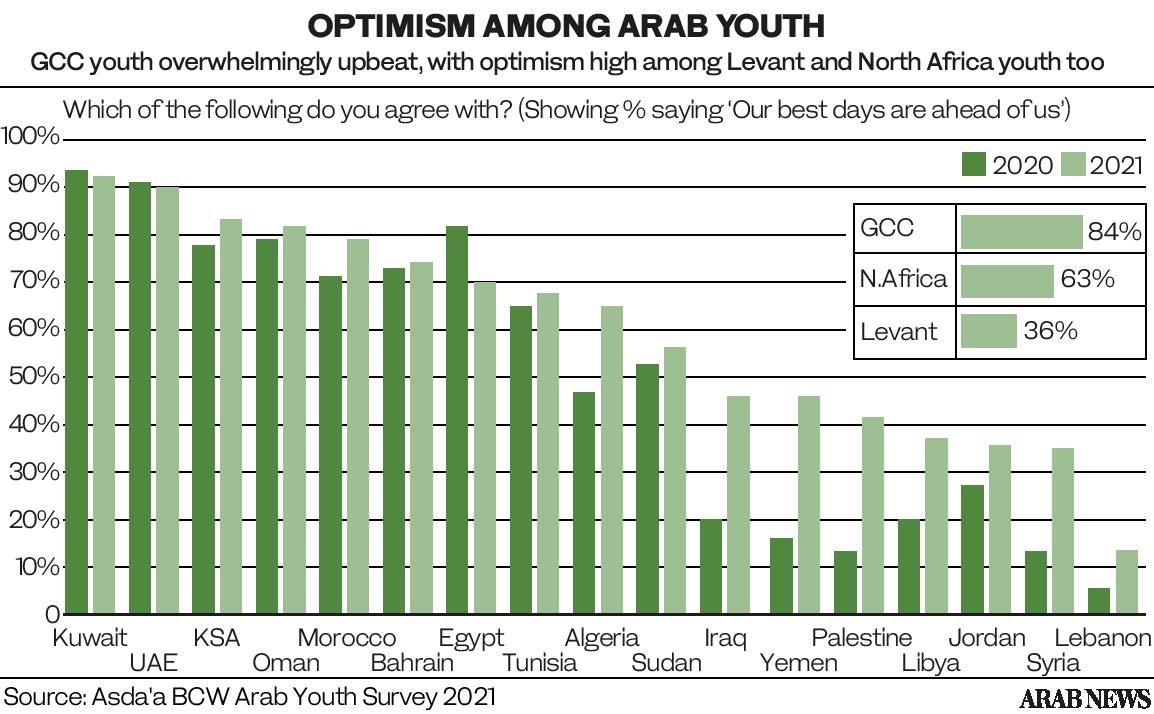
The poll, now in its 13th year, found that a growing majority of young people are taking a positive view of the future, with 60 percent agreeing that “their best days lie ahead of us,” according to the survey of 3,400 men and women aged 18-24 in 50 cities across 17 Arab states. The survey response was split 50/50 between men and women.
Optimism was particularly strong in Saudi Arabia, where a big majority — some 82 percent — said they strongly approve of their government’s handling of the pandemic, describing its response as “excellent.”
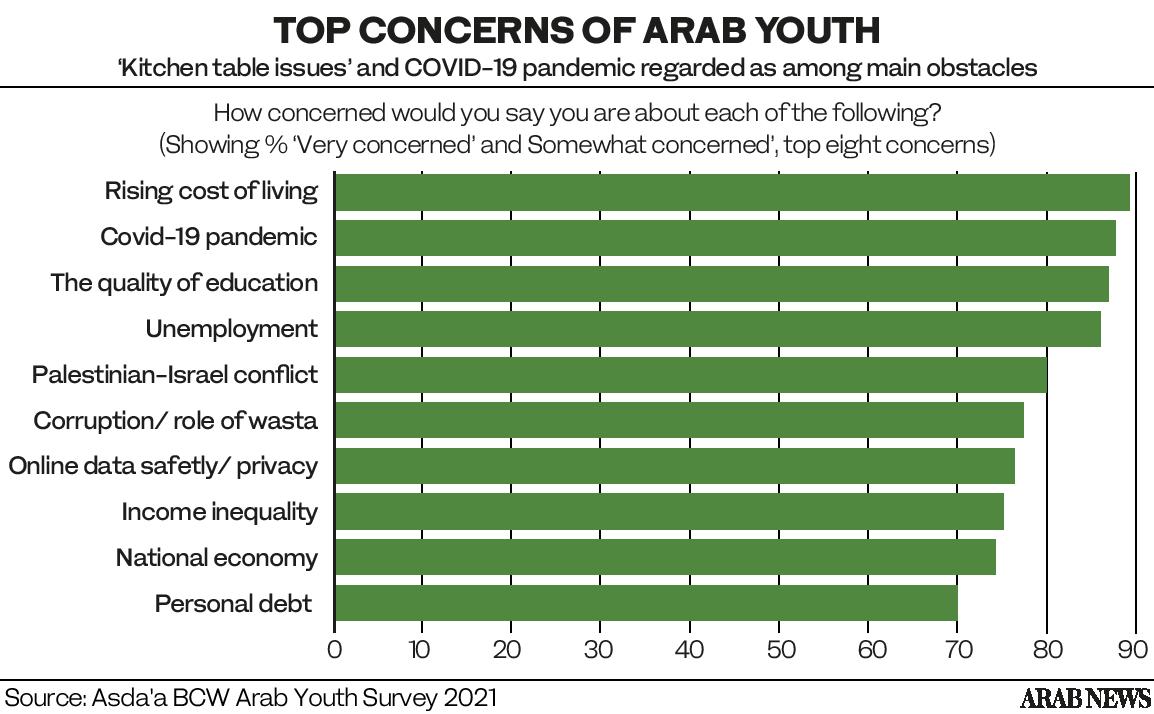
That is significantly higher than the average for the Gulf Cooperation Council member states of 51 percent, and the average for the Middle East and North Africa of just 25 percent of young people.
While many young adults worldwide are reluctant to have any of the COVID-19 vaccines now available to them, young people in Saudi Arabia strongly support inoculating themselves against the virus, with 93 percent of survey participants in the Kingdom saying they have either taken a vaccine or plan to do so, compared with the regional average of 49 percent.

In economic terms, young Saudis also lead the way in the region, with 98 percent saying the Kingdom’s economy is “heading in the right direction.”
The same proportion said they are confident that Vision 2030, the strategy for economic and social reform, will succeed, up from 91 percent last year.
Announcing the findings, Sunil John, president of BCW MENA region, said: “Despite the grave social and economic challenges facing much of the region, the hopefulness of young Arab men and women has been one of the most pleasing, if somewhat unexpected, findings of this year’s research, although regional decision-makers have a tremendous responsibility to ensure the ambitions of their young people are fulfilled.”
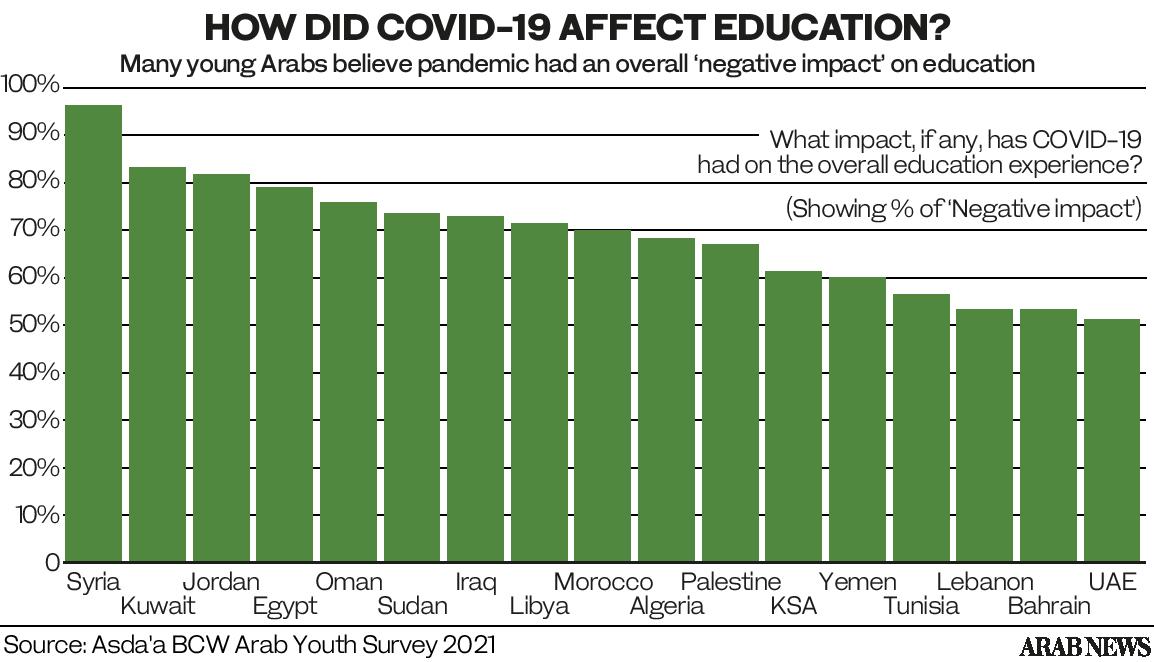
In particular, young Arabs want regional policymakers to focus on further economic progress in the wake of the pandemic, and to deal with basic “kitchen table issues” such as the rising cost of living, the quality of education and unemployment.
Concern over the rising cost of living has been a persistent factor in young peoples’ thinking in recent years, waning just marginally in 2021, with 89 percent responding that they are very or somewhat concerned about inflationary pressures on their everyday lives. Over a third of young Arabs said they struggle to meet their expenses.
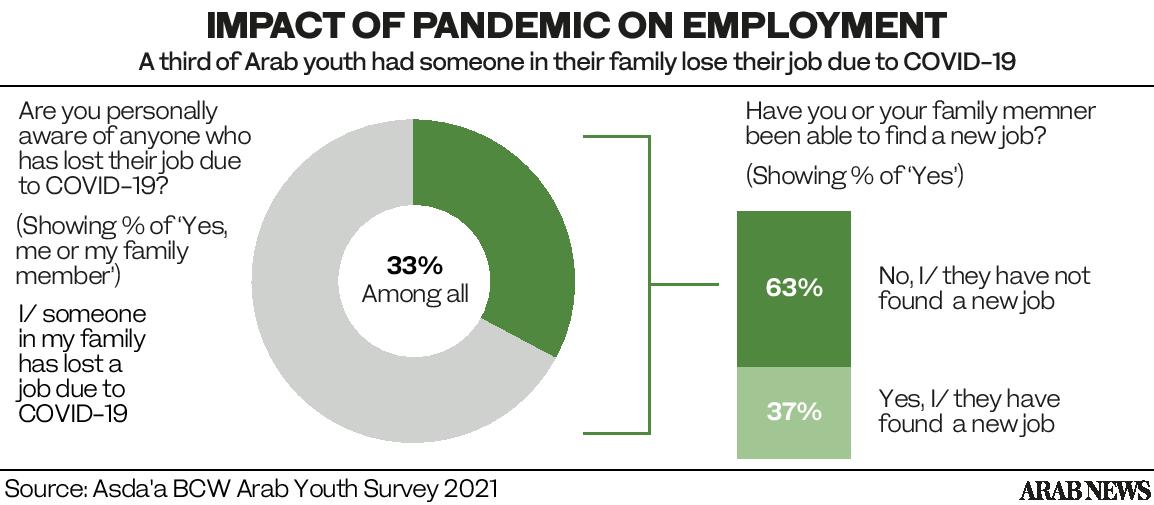
“The results of this year’s study indicate that while Saudi youth are facing many of the same challenges as their regional peers, such as rising living costs and increasing job market competition, they are fully behind their leadership’s vision for social and economic reform,” John said.
As in previous years, the survey threw up wide variations between different parts of the MENA region.
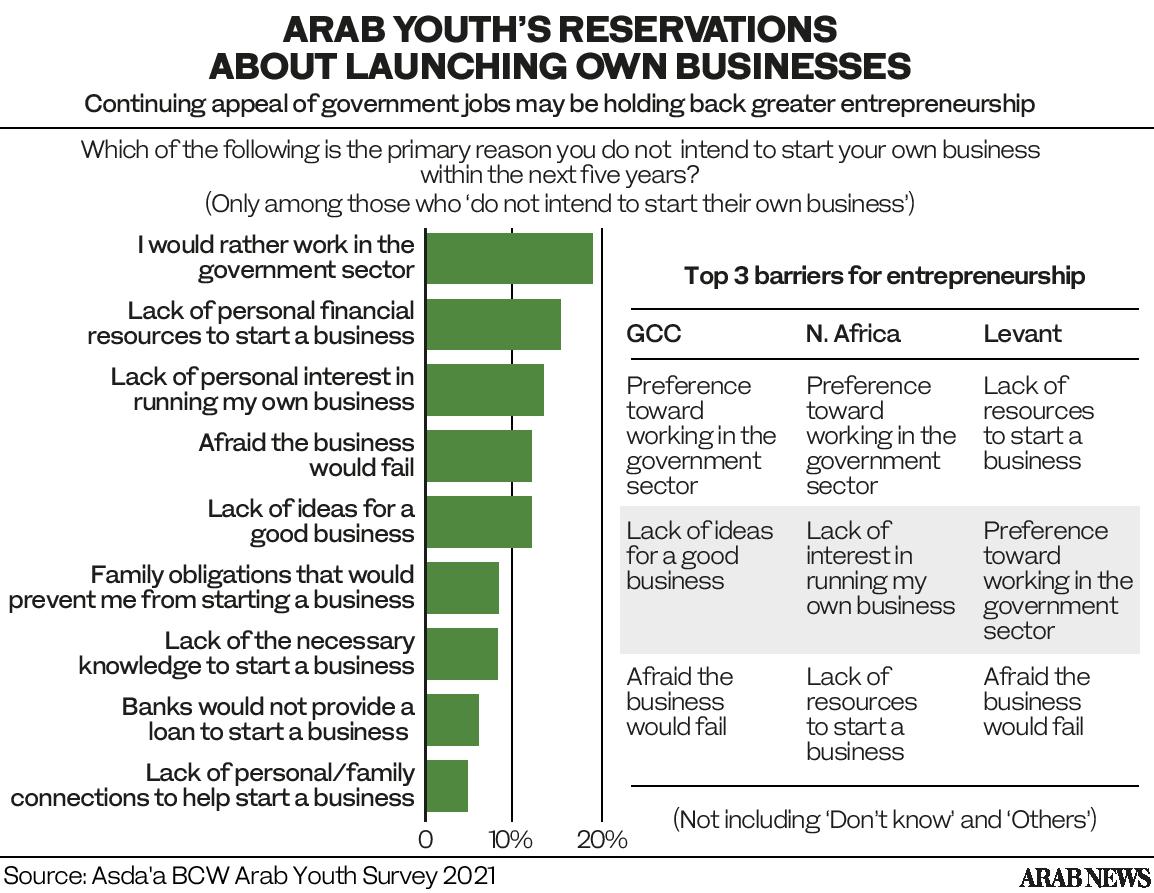
Broadly, young people in the GCC countries are more optimistic than their peer group in North Africa, and markedly more so than those in the Levant.
In the Levant countries, more than half of respondents — 56 percent — face regular financial problems.
Across the region, a large number of young men and women are concerned about high levels of personal indebtedness, with many citing the rising cost of educational expenses and personal debts as a big reason for their financial anxiety, as well as car loans and medical bills.

A big number think the pandemic has had a negative effect on their education and employment prospects.
Some 33 percent said they or a family member had lost their job during the pandemic, and most of these have not yet been able to find new employment.
Despite the drive in many regional countries to diversify their economies away from government-sector employment, a large number of young people — some 42 percent — still said they would prefer to work for the public sector.

“The continuing appeal of government jobs may be holding back greater entrepreneurship across the region,” the survey found.
Despite concerns generally about education quality, 97 percent of young Saudi men and women said their schooling has equipped them to succeed in technology-related industries.
Reflecting the Kingdom’s economic diversification drive, 62 percent of respondents said they are “very interested” in pursuing a career in tourism, compared with the regional average of 27 percent.
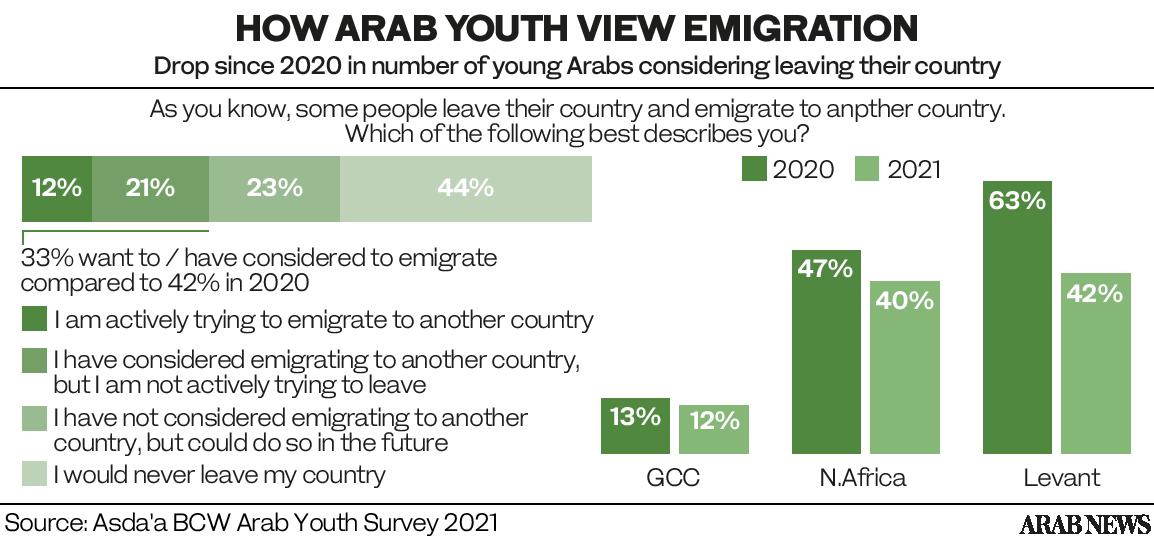
However, most think their voices matter to governments when formulating policy, with about half agreeing that they have the right policies to deal with their concerns.
But tackling public corruption or “wasta” remains a challenge, young people said in large numbers.
Religion still plays a prominent part in the lives of young men and women, with 34 percent saying it plays the most important role in their personal identity.

This proportion has been falling steadily in recent years, and while young people still strongly prioritize religion over factors such as tribe or nationality, over two-thirds want to see further religious reform in their countries.
The importance of Saudi Arabia as a regional ally was also highlighted in this year’s survey. The Kingdom was named alongside Egypt and the UAE as a strong ally of their country, or somewhat of an ally, by 80 percent of interviewees across all 17 Arab states.
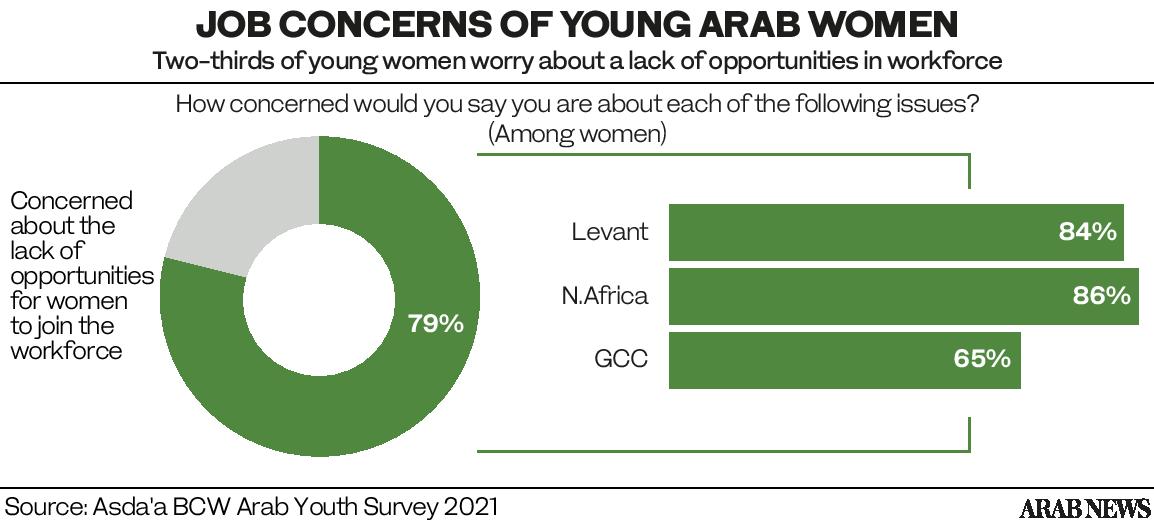
But Arab youth also continue to feel the presence of the US in regional affairs, with 51 percent saying the country has the most influence over the Arab world, followed by Saudi Arabia (29 percent) and the UAE (23 percent).
For the 10th consecutive year, the survey found that the UAE is the country most young Arabs would want to live in, and would most like their own governments to emulate.
But Canada, the US and Germany were the most popular global destinations for emigration, the survey found.
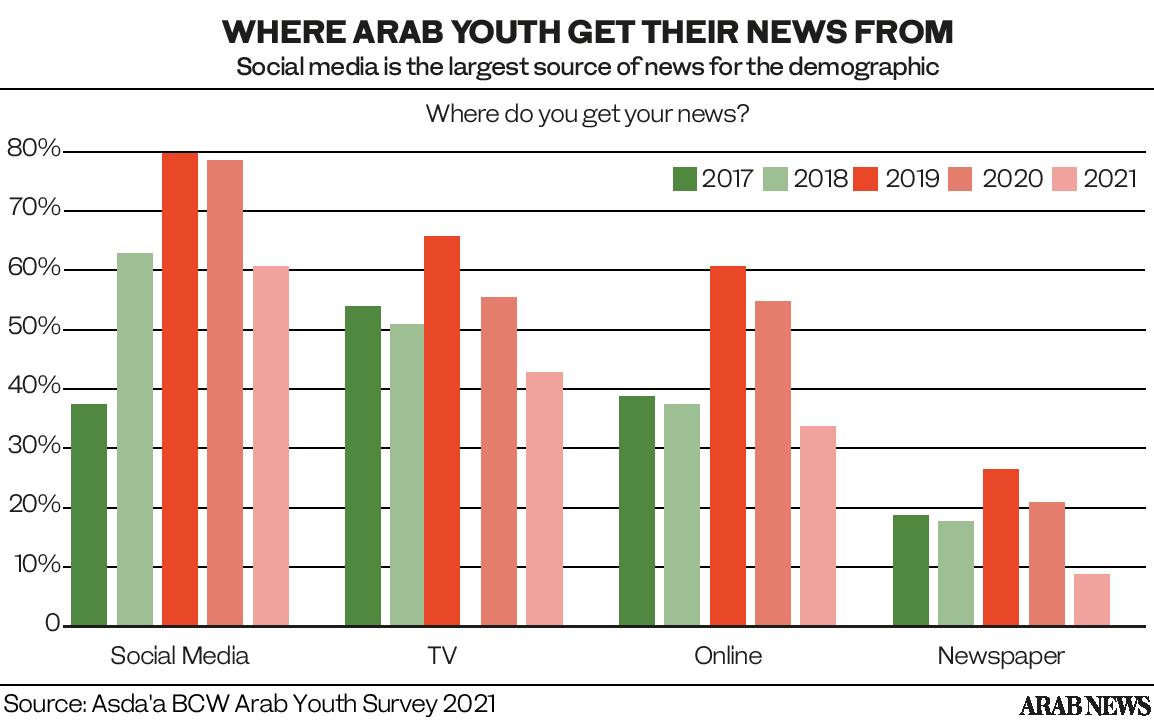
In foreign relations, Egypt, the UAE and Saudi Arabia are regarded as the most important allies for young people’s own countries, but the influence of the US in their affairs has not been affected by the polices of the Biden administration, with more than half identifying America as a big influencer in their lives.
Despite moves toward gender equality in many MENA countries, young women cited more challenges in accessing jobs compared to men, with two-thirds concerned about lack of opportunities to join the workforce. Nearly three-quarters of women think it would benefit their family more if they got a job.
In terms of media habits, social media remains the most popular source for news, but the proportion saying they get most of their news from there has fallen, and trust in social media outlets has declined during the pandemic. TV news remains the most trusted source of news for young people.
Inability to “turn off” from social media is a growing issue for young people, the survey found, with 67 percent reporting they find it difficult to disconnect.





